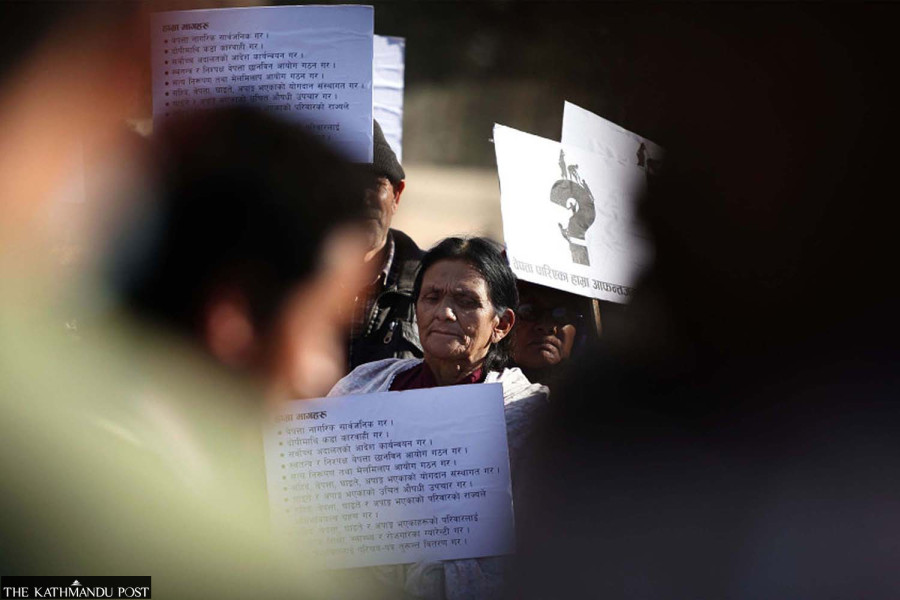National
Transitional justice bodies get terms extension without chairs and members
Though the commissions have got the extension of their terms, they will continue to remain defunct in the lack of the office bearers.
Post Report
On July 15, the government extended the terms of the Truth and Reconciliation Commission and the Commission of the Investigation on Enforced Disappeared Persons for three months bidding farewell to their chairpersons and members.
The terms of the leadership were not extended as the government expected that the Commission for the Investigation on Enforced Disappeared Persons and Truth and Reconciliation Commission Act 2014 would be amended in three months and the chairpersons and members would be appointed based on it. The conflict victims and human rights defenders had been objecting to the appointment process of the leadership in both the commissions saying it was politically appointed.
Contrary to the government’s expectation, the amendment bill to the Act was never tabled in the parliament for voting as the CPN-UML objected to several provisions on it saying they were targeted at shielding the perpetrators. Along with the victims of atrocities of the decade-long Maoist insurgency, human rights activists and national and international human rights organisations too objected to the different provisions in the bill and demanded the government to endorse it only after revising them.
However, the ruling parties were not ready to revise most of the provisions as demanded by the stakeholders. The government wanted the bill to be endorsed by the Law and Human Rights Committee of the parliament unanimously which would pave the way for the passage of the bill in the federal parliament. As there was no agreement between the ruling and the opposition parties on whether or not to list murder as serious violations of human rights, the bill couldn’t get endorsed unanimously from the House committee. The government then decided not to present it for voting in the federal parliament.
The prospect of the amendment ended with the tenure of the lower house coming to an end on September 17. As the terms of the commissions were expiring on Monday, the government on Friday extended their terms until July 16.
The government extended the terms as per Section 42 of the Act, which authorises the Nepal government to ‘remove difficulties.’
This provision, however, requires the government to present an ordinance in Parliament within 30 days. As there is no parliament, the decision needs to be presented in the House to be formed after the November 20 elections.
Though the commissions have got the extension of their terms, they will continue to remain defunct in the lack of the chairpersons and members. “Commissions getting the terms extension is meaningless because they can’t do anything in the lack of leadership,” Janak Raut, a former general secretary of the Conflict Victims’ Common Platform, told the Post.
Seven years since their formation, the two transitional justice commissions haven’t been able to make any concrete headway in providing justice to the victims.
The truth commission has received 63,792 complaints since its formation in February 2015 while the disappearance commission has received 3,223 complaints of enforced disappearances at the hands of state security forces and the Maoists. After a preliminary investigation, the commission has identified 2,484 cases as genuine.




 13.12°C Kathmandu
13.12°C Kathmandu













